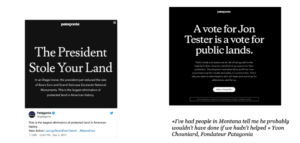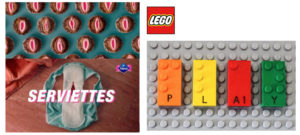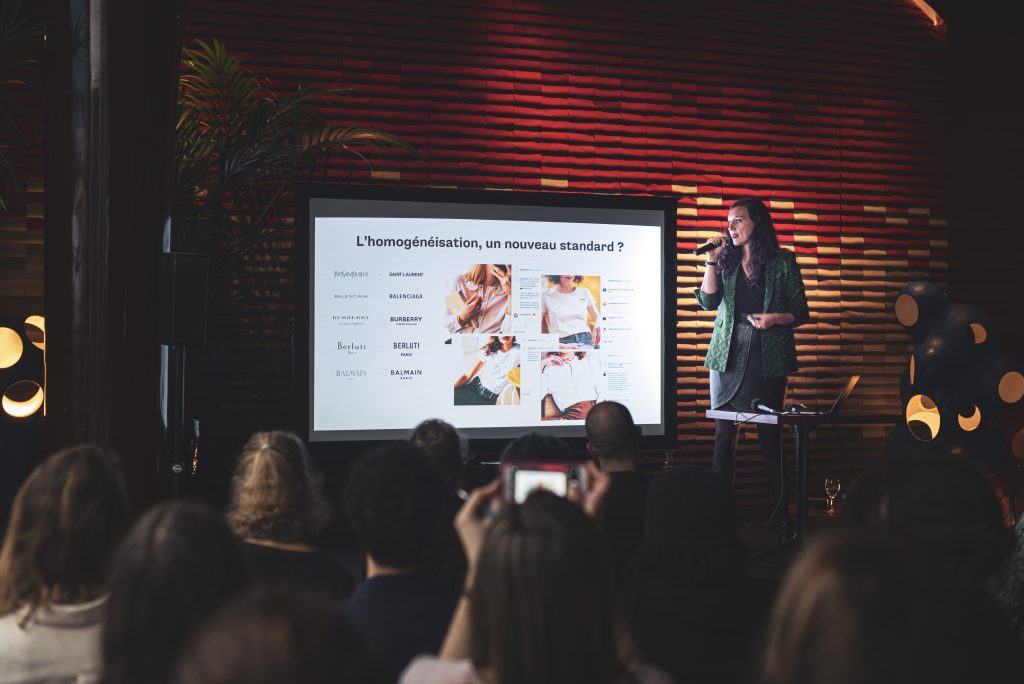Distressing daily life, the drift towards greenwashing and purpose-washing, the weariness of hero brands … in light of the current crisis of meaning and confidence, people no longer know who and what to believe. While almost 70% of citizens call on companies to take sides on social issues, brands have a duty to provide real answers, to give a sense of purpose to their beliefs, and even help reshape the world. The key is to know how to go about it…
With last year’s Change for Good conference we opened a discussion to face the challenges. Today, brands has to be bold and stand by their beliefs! Let’s return to the top 3 takeaways from the #BeBold conference…
Know your target better in an era of accountability
While many brands still offer standardised responses to address the greatest number of people, one of the key levers for rethinking a bolder and more relevant brand experience is to revamp your segmentation and core target…even if it means being divisive. However, does this approach imperatively mean an increased business risk?
Not necessarily.
According to YouGov [1], McDonalds, Starbuck, and even Apple are among the most divisive brands. Namely, they accumulate a significant number of “brand lovers” but also “brand haters”. And despite this such divisive brands are among the most financially valued global brands [2].
It therefore seems necessary to rethink a target that makes sense for the brand. Like the recent repositioning of the Jennyfer clothing brand (newly rebranded DCM Jennyfer [3]). It has refocused its efforts and investments on its highest added-value target: adolescent girls.
In essence, it’s about brands addressing less people more effectively.
For the brands, it means going beyond the famous social-demographic criteria and questioning the beliefs, practices, myths and values of their audience. The era demands that brands consider people’s identity criteria and have resonance with that criteria.

[1] YouGov Brandindex, 2019 [2] Best Global Brands, Interbrand 2019 [3] D.C.M Jennyfer = Don’t Call Me Jennyfer
Choose your position carefully, from condemnation to change
Criticism is easy but art is difficult. At a time when whistleblowing is just a click away, only brands that put their advocacy in the service of change will find real added value. Remember, actions speak louder than words.
More than denouncing Trump’s environmental policy, Patagonia is supporting candidates that have environmental credentials and is acting as a catalyst for change. By standing up for their conviction, and being engaged in the public debate some brands like Carrefour with its Act For Food are publicly challenging agricultural regulations in favour of biodiversity and pesticide limitation.
More than ever, brands must choose the battles that are coherent with their business strategy, their brand purpose and with their ability to create and effect real change.

Sending out a strong signal for change
Challenging the category codes means breaking from the monolithic speeches to show another way or another voice is possible.
By drawing its activism from imagery and revolutionary posters, Naturalia is giving power back to nature and mankind, forsaking the aging and obsolete universe of the organic supermarket.
By graphically embodying the female organs in her Viva La Vulva campaign, Nana makes it possible to change the way we look at periods and women’s bodies.
Beyond the creative and graphic executions, audacity is also reflected in the innovation of new products and services which disrupt codes and markets. Sometimes it can be more inclusive like the Lego initiative to include bricks in braille. Sometimes it can be around responsibility with Heineken’s non-alcoholic beer for Dry January. These initiatives are levers of renewal for brands as well as real business opportunities for the company.

Finally, if audacity and innovation are change catalysts on many levels, societal, economic, cultural, attitudinal and behavioural… it’s important for brands not to get lost on the way.
It is vital for them to stay true to their beliefs over the long term, and to embody them through strong leadership, avoiding the vagaries of fashion, staying credible in their ambitions and their achievements. These are key ingredients of a true and unique authenticity, able to guarantee the sustainability of each model and the trust attributed to each brand. A promise made must be a promise kept.
Kim Hartmann – Head of Strategic Planning
They also told us :
“We listened to women and filmed shaving sequences that were not previously represented, like belly and toe shaving. Our purpose was to normalize these behaviours because today many young girls are thinking “I am not normal if I have some hairs below my belly button. As soon as we launched this campaign, everyone appropriated it, and we were accused of inventing new body parts to shave to make more business! So, whatever you do, being attacked is a possibility, and you should prepare for it.” CHRISTINE CABON, Communications Leader Gilette & Venus
“It is no longer working to be defensive and have a compensatory approach of sustainable development. It is over to reason like ” my company is throwing plastic to the oceans every day but we have a foundation giving 100,000 € to fight against deforestation in the amazon region”. Our new generations are no fool, and that is why brand commitment must be put back at the core of our economic model. Brands – especially the bigger ones – have a role to play because they have more impact and can be much more powerful than us as start-ups.” JEAN MOREAU, Co-Founder Phenix
Relive the highlights of the conference by clicking here! Keywords: branding, be bold, conference, brands beliefs

